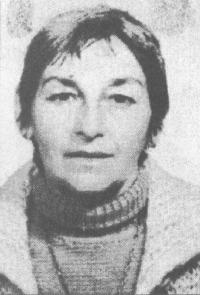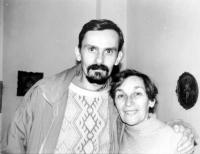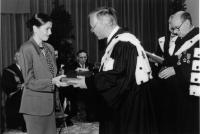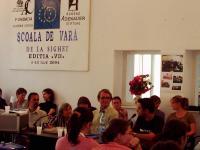…I looked at a photo from „Scânteia” newspaper of Ceaușescu surrounded by people. He looked quite well, like a free man. But the others… some of them were sitting with their hands crossed over their bellies, others were having a pen and a notebook. They had fat faces with no cast. Then I had a revelation: „How on earth, we have changed even our features?!” (...) And this scared me. It really scared me! What it is happening with us, the Romanians?

Download image
She was born on May 30, 1929, in Braşov. After the outbreak of the Second World War, in the context of Transylvania being ceded to Hungary in 1940, Doina Cornea attended a Hungarian school. After graduating from high school, she pursued a degree in French language and literature at the Faculty of Letters of the Babeş-Bolyai University. In 1958, Doina Cornea started teaching in the French Department at the same university she had studied at. In 1976, Doina Cornea’s daughter left Romania, having been awarded a scholarship for a one month stay in Grenoble, along with other 29 Romanian students. After completing the scholarship, she decided not to return to her country. In the early 1980s, inspired by the anti-communist movements from the late 1970s (the Jiu Valley miners’ strike; the emergence of the ‘Goma Movement’), Doina Cornea got her first protest actions under way against the regime led by Nicolae Ceauşescu. In 1980, Doina Cornea finished her first ‘samizdat’ manuscript (she made manual copies of Mircea Eliade’s Ordeal by Labyrinth), which she passed around among her circle of acquaintances. In 1982, Doina Cornea wrote her first protest letter against the regime (entitled To those who haven’t stopped thinking), which she sent to Radio Free Europe with the help of her daughter Ariadna Combes. After the radio broadcasting of the letter’s content, in December 1982, Doina Cornea was called in for questioning by the Securitate, and then, in 1983, dismissed from her position at university. Between 1983 and 1987, Doina Cornea continued to write protest letters. Many of them were written on paper similar to rolling paper, and were sent to her daughter in France, who would decipher them and then send them to Radio Free Europe. After each broadcasting of one of her letters, Doina Cornea would be obliged to pay a fine of 5,000 Lei. On November 18, 1987, following the anti-communist rebellion of the workers in Braşov (on November 15), as a sign of solidarity, Doina Cornea wrote 160 manifestos together with her son, Leontin Iuhas, which they distributed in Cluj. The following day, on November 19, the Securitate searched both Doina Cornea’s and Leontin Iuhas’ home, both were taken into custody for further investigation at the Securitate headquarters in Cluj. After over a month of investigations, on December 24, 1987, Doina Cornea and her son were released from custody. After being released, Doina Cornea’s house was put under surveillance, while she was constantly monitored and harassed by the agents of the Securitate. Nevertheless, Doina Cornea persevered in sending protest letters until the fall of the communist regime in 1989. After 1989, she participated in all efforts to rebuild the civil society, and was regarded as one of the most authorized voices of the civil society. Doina Cornea talked about her actions before and after 1989 in several books, for instance in ‘Jurnal. Ultimele caiete’ (Journal. The Last Notebooks), published by the Civic Academy Foundation in 2009. Doina Cornea is now living in Cluj.




